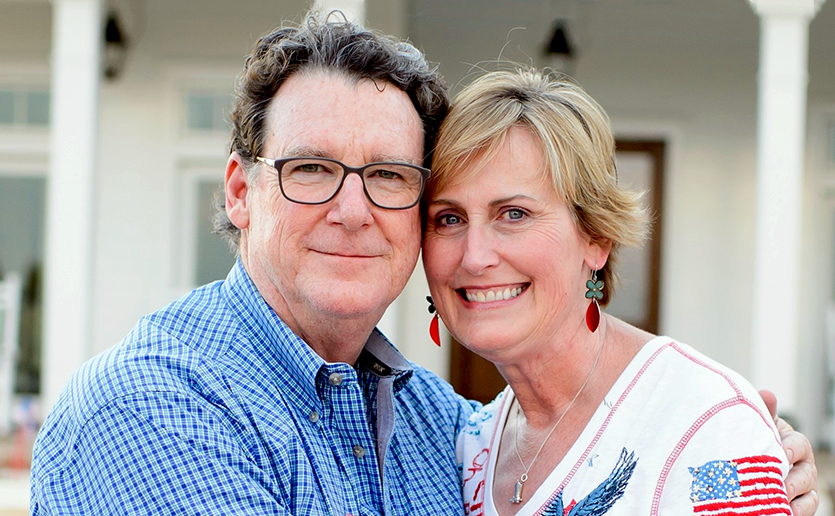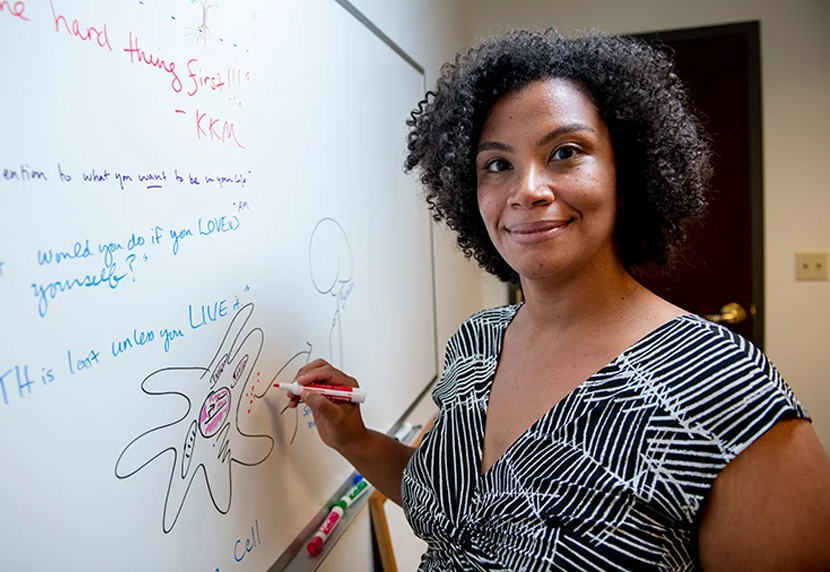Cathy Seilhan looks back on her teenage self and realizes she always had “an extreme kind of emotion and mood. When I was sad, I was very sad. When I was happy, I was very happy.”
“Back then, people didn’t talk about mental illness. We kept each other in the dark.”
Even with these mood swings, “life was kind of easy” for Cathy. But adulthood — a challenging marriage, a new baby and a demanding career as an educator — created so much stress, sadness and anxiety that she found herself unable to cope.
Finally, one day at school during cafeteria duty, a young boy asked how she was doing. “I broke into tears and I couldn’t stop crying,” she recalls.
A Bipolar Diagnosis
The school principal whisked her out the door and into the office of the school’s trusted diagnostician. The two professionals sat with her for hours as it became clear that she needed more than an office visit. Cathy was eventually admitted to a behavioral hospital, diagnosed first with major depressive disorder and then bipolar disorder. She spent six weeks in outpatient treatment before she returned to school.

It was as if nothing had happened. “Back then, people didn’t talk about mental illness,” she notes. “We kept each other in the dark. It seemed like no one would understand, and it seemed too scary to open. The stigma was huge.”
Grateful to the Dauten Family Center
Cathy credits her happier and healthier life to her husband, Denton, and to Andrew Nierenberg, MD and his team at Massachusetts General Hospital‘s Dauten Family Center for Bipolar Treatment Innovation. The grateful Seilhans are generous supporters of the Dauten Center. “I think [Dauten Center team members] are going to make breakthroughs in our lifetime,” Denton says. “We are happy to be a part of that.”
It was cognitive behavioral therapy, not medication, that became the bedrock of [Cathy’s] treatment.
With bipolar disorder, Cathy says, “practicing forms of meditation has great benefits. I began learning the power of stepping back and being curious about my emotions, instead of being a victim of them. That was a huge breakthrough,” she says.
A Supportive Partner
Cathy and Denton married in June 2010. From the beginning, Cathy was honest with him about her illness and its effects. Says Denton, “it can be really hard. When Cathy is doing well, everything is so simple and beautiful. When she is having difficulties, it can get tense. It takes a lot of patience and understanding.”
Denton also found it helpful to talk to a mental health professional to gain understanding and insight. “He’s learned a lot,” Cathy says. “He’s loyal. He’s not going anywhere because of it.”
Effective Holistic Solutions
Finding the most effective treatment for Cathy was a “trial and error” process. She had difficulty tolerating the side effects of medication.
“When you are given the diagnosis, the game isn’t over,” she says. “It is just beginning.”
The breakthrough occurred when Dr. Nierenberg recommended that Cathy try over-the-counter supplements. That led her to renew a focus on diet and exercise — even a 10-minute walk would prove beneficial. She is thankful that Dr. Nierenberg always made the case for the holistic approach. It was cognitive behavioral therapy, not medication, that became the bedrock of her treatment.
“The frontier is very exciting, and I live a deeply meaningful life with my bipolar disorder. I want others to know that they can too.”
A Meaningful Life
“Over time, I was calmer and less irritable, and happier. I was able to regulate my emotions,” she says.
Today, she is retired, which, she contends, makes it easier to be more open about mental illness, with no worry about stigma and loss of livelihood.
“I want everybody to feel better,” Cathy states, “to share in my hope. The frontier is very exciting, and I live a deeply meaningful life with my bipolar disorder. I want others to know that they can too.”
To learn more about how you can support the Mass General Department of Psychiatry, please contact us.



